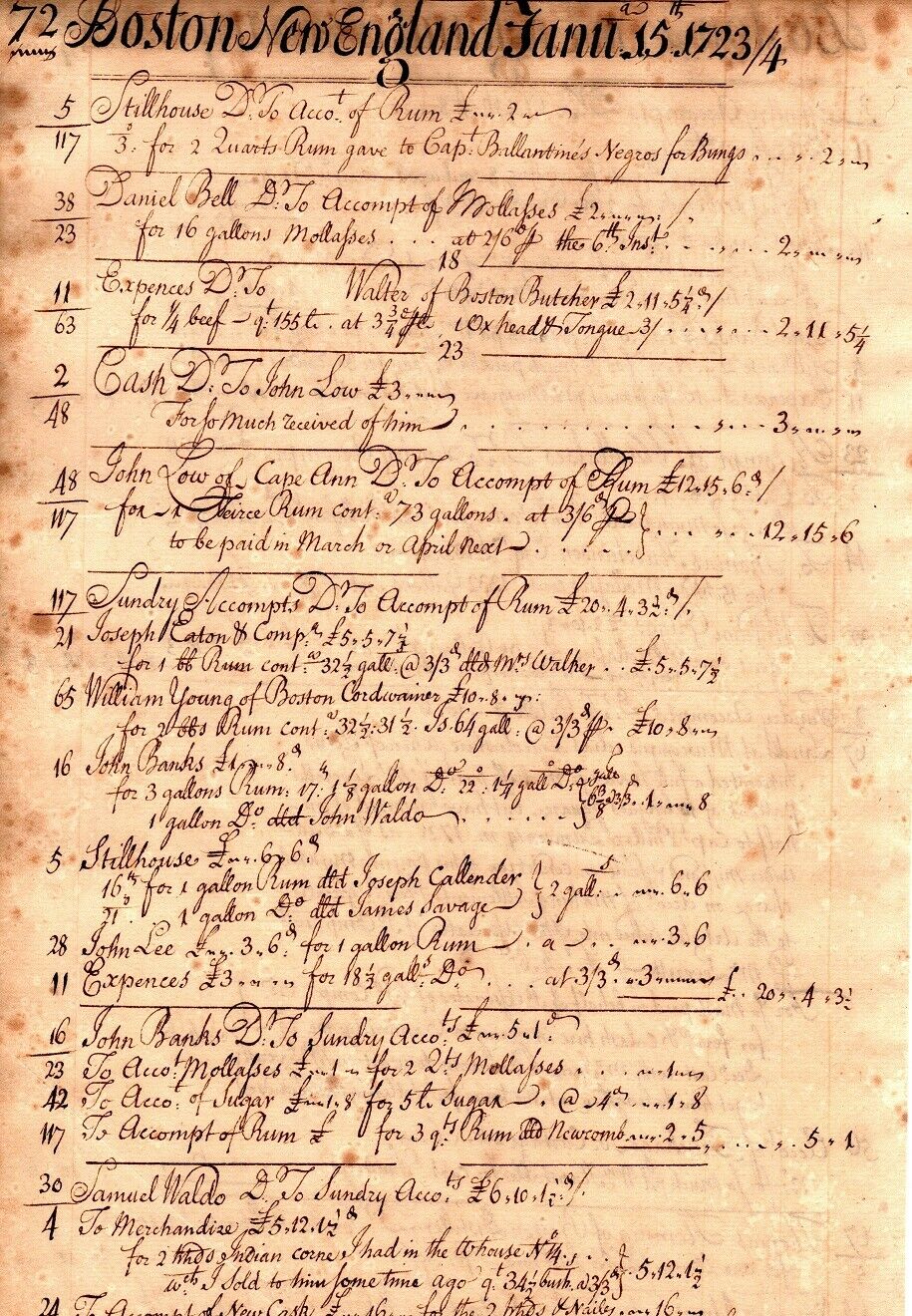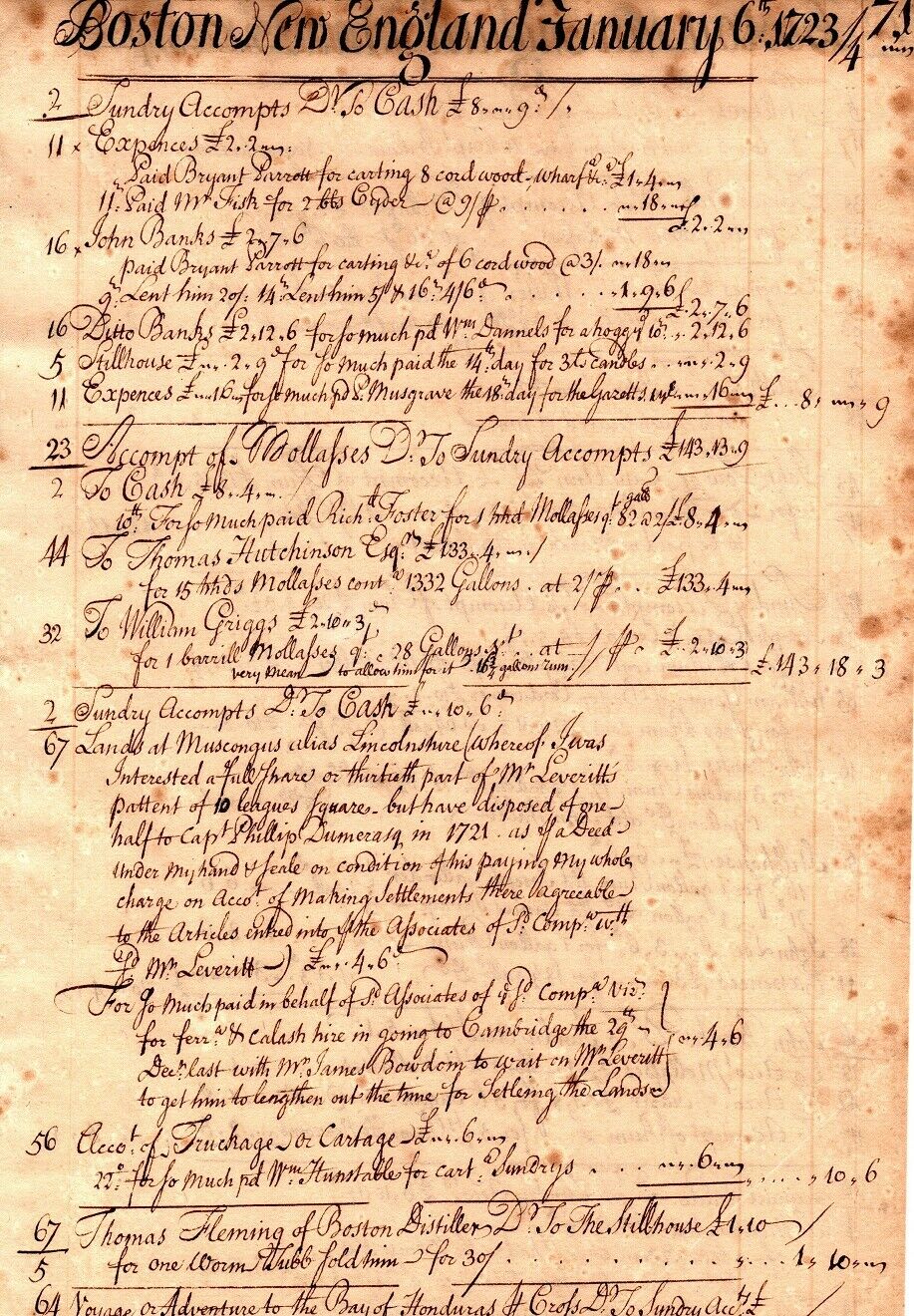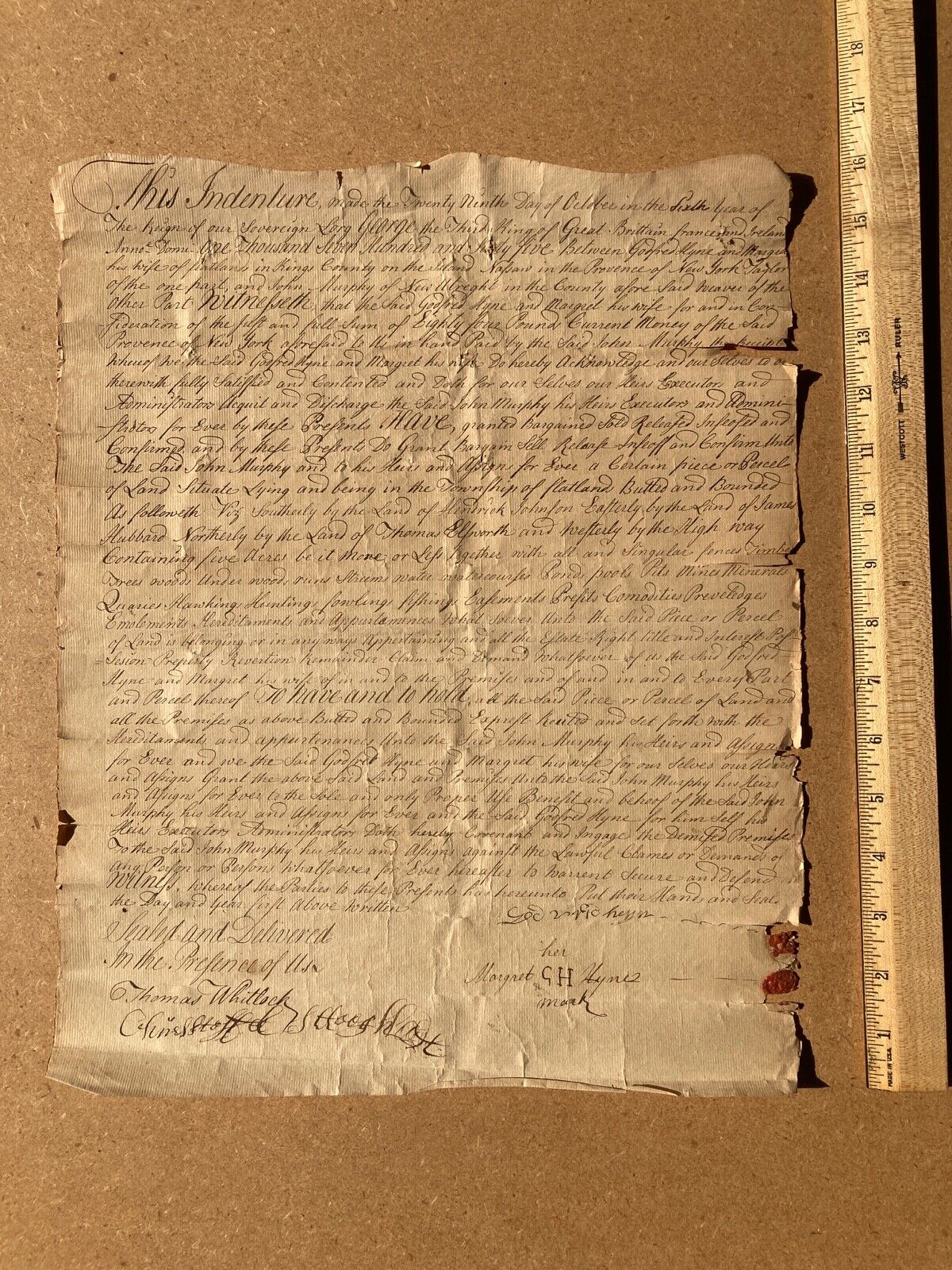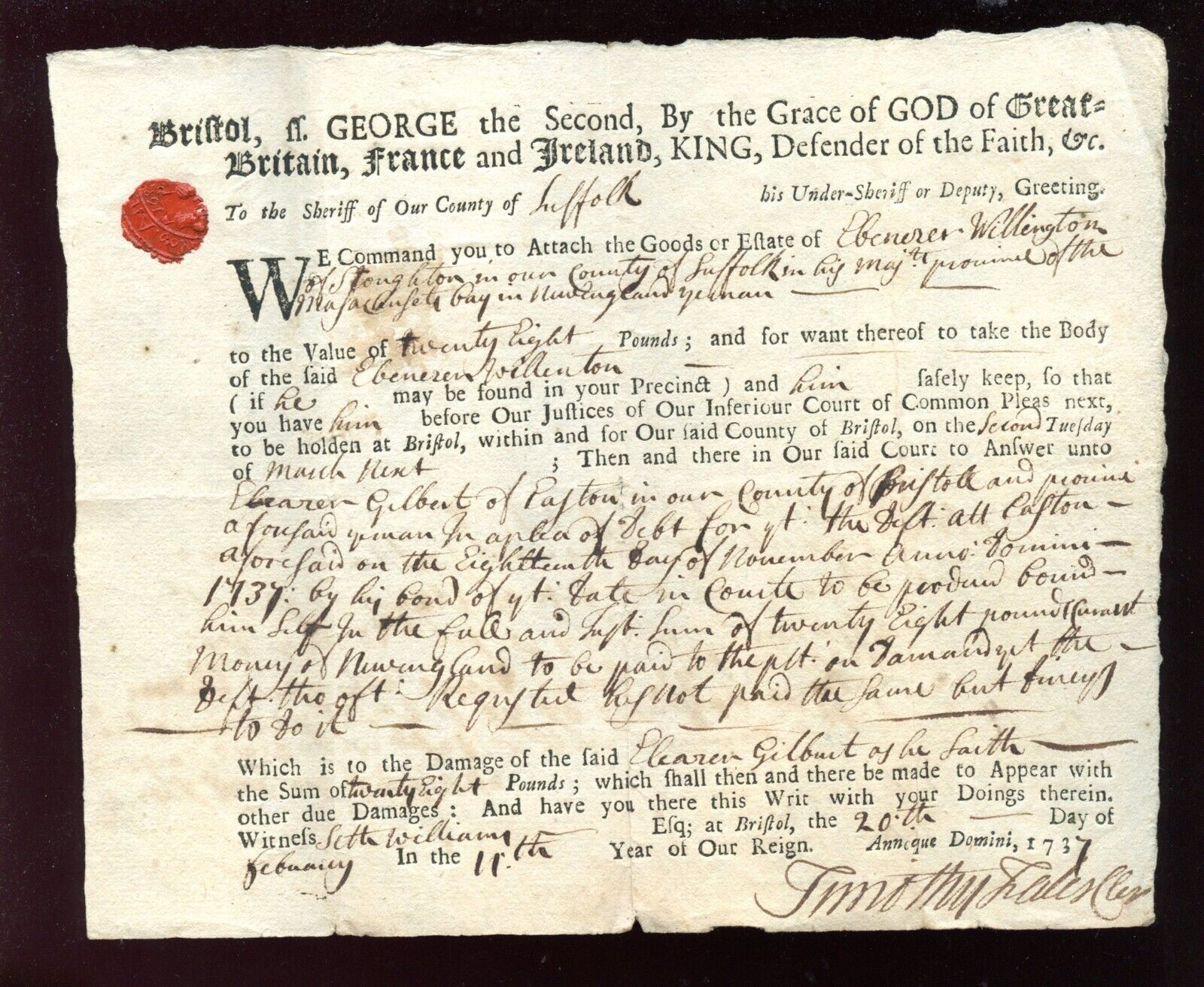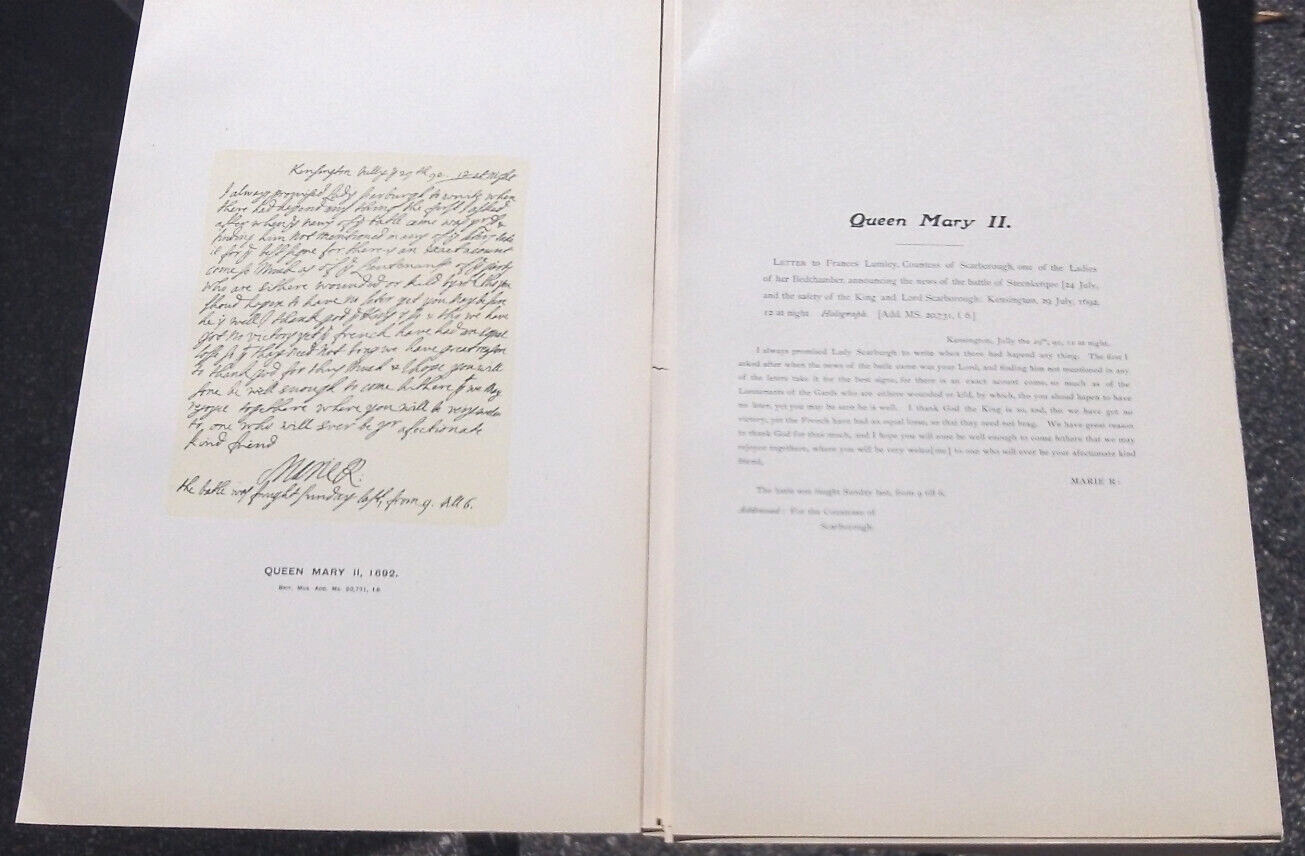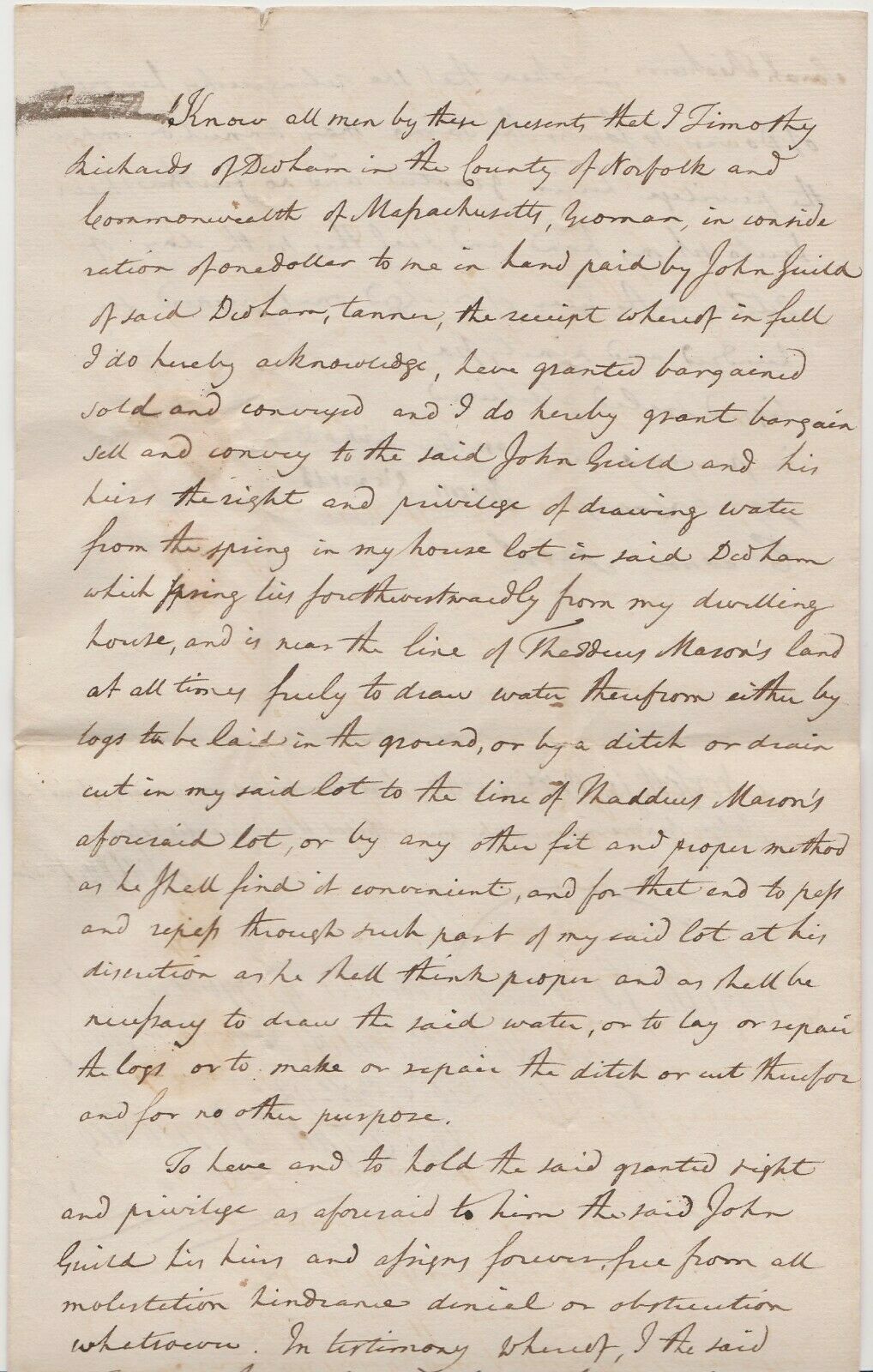-40%
1722, Boston, Cornelius Waldo, Grog house ,sells lands in Maine, ledger page
$ 11.88
- Description
- Size Guide
Description
This is an, original document dated 1723, Boston, Massachusetts, a two sided ledger sheet entirely in the hand of Cornelius Waldo describing the various payments made for molasses, people owing money and people he owed money to. Interesting account of payment to sell part of his land in the Muscungus Patent, (a vast tract of land in Maine that once encompassed a million acres); Lincolnshire, Maine.....ledger sheet is 9x13, minor age toning, else in overall fine condition.Cornelius Waldo was a twin, born with his brother Jonathan on November 17, 1684, in Dunstable, Massgachusetts, to Cornelius (before 1657–before 1697) and Faith Peck Jackson Waldo (1658–1732). He was baptized at the First Church in Boston in 1692. On August 28, 1711, he wed Faith Savage, daughter of Thomas and Elizabeth (Scottow) Savage of Boston. She was pregnant with their first child at the time, which led one genealogist to adjust the marriage date to 1710. They had nine children, including Daniel Waldo, who established the family in Worcester in 1782.Cornelius Waldo was a prosperous merchant, distiller, and landowner who held property in Boston, elsewhere in Massachusetts, and in Maine. According to family tradition, he was apprenticed to the Boston merchant John Oulton, who was later Waldo’s business partner.In 1721 Oulton and Waldo imported "Canary Wines," which they sold "by the Pipe or Quarter Cask."
In 1734 Cornelius formed a brief partnership with his cousin Samuel, selling Madeira wine, which they had shipped from St. Kitts, by the pipe, hogshead, or quarter cask.5 (Samuel would later go on to fame for his role as second in command to Sir William Pepperrell in the attack on the French at Louisbourg.)In addition to his merchant trade, Waldo established a distilling business in Boston. In 1722 he leased land from John Leverett and obtained permission to erect a still house. In 1738 he was selling rum, probably of his own manufacture, by the hogshead, barrel, and quarter cask. By 1743 his operations included several wells, a building at least forty feet long, a "Rum House and Engine that his Horse goes in to pump the Water," and a stable built over one of the wells. His works included "Stills" and "a mighty Worm Tub" that covered enough ground to fit a "Stable for two Horses & Hay to feed them. Waldo’s remaining enterprise was investment in land in Massachusetts and Maine.
In 1719 he was a partner with his uncle Jonathan and Jonathan’s son-in-law Thomas Fairweather as one of twenty associate owners (along with ten original proprietors) of the Muscungus Patent, a vast tract of land in Maine that once encompassed a million acres. Cornelius’s cousin Samuel would eventually own half of these acres. The land Waldo bought in Worcester County in partnership with John Oulton and Thomas Palmer was divided in 1727, when the partnership was dissolved. In 1733 he purchased a farm in Watertown; he would later offer to lease the back part of the dwelling to "a good Husbandman" and the front part of the house with "Gardens and other Accommodations, to a Gentleman for a Country Seat." At the time of his death, Waldo owned land in Rutland, Worcester, Holden, Watertown, and Plymouth.
Please view the other historical and Civil War related documents I'll be listing this week.SEE SCAN.I now accept PAYPAL but PREFER other forms of traditional paper payment. Buyer pays shipping(usually FREE within the US and for International),payment must be received within 5 days.
